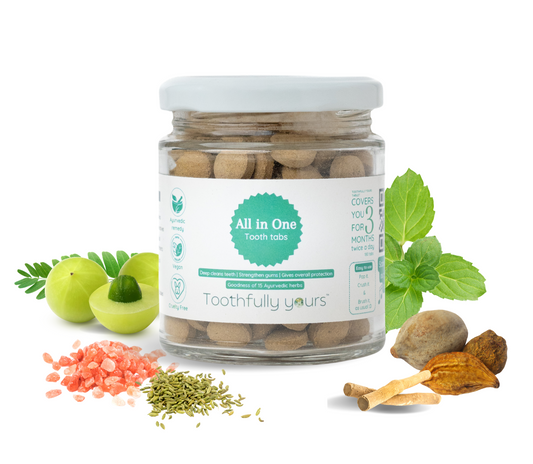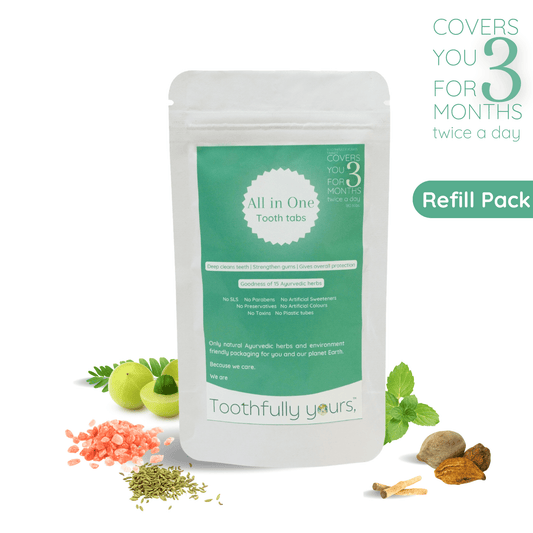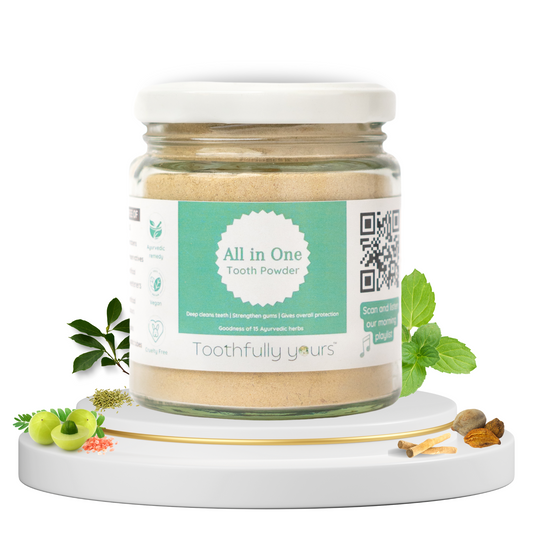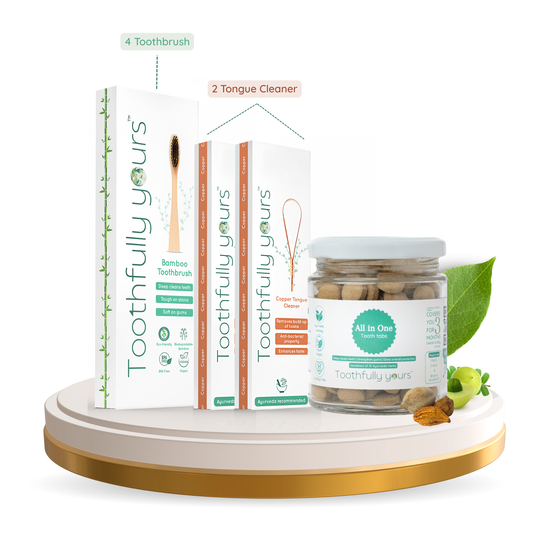
Toothaches: Symptoms, Causes, Care, Home Remedies, and Treatment
Toothaches are a common dental issue that can cause significant discomfort and affect daily activities. In this comprehensive guide, we'll explore the symptoms, causes, preventive care, effective home remedies, and professional treatments for toothaches. Whether you're experiencing mild discomfort or severe pain, understanding the underlying factors and implementing proper care is crucial for alleviating symptoms and maintaining oral health.
Symptoms of Toothaches:
Toothaches can manifest in various ways, including:
- Sharp or throbbing pain in the affected tooth or surrounding area.
- Sensitivity to hot or cold temperatures.
- Swelling or inflammation of the gums.
- Difficulty chewing or biting.
- Persistent bad breath or an unpleasant taste in the mouth.
Causes of Toothaches:
Several factors can contribute to toothaches, including:
- Tooth decay: The most common cause of toothaches, tooth decay occurs when bacteria in the mouth produce acids that erode tooth enamel, leading to cavities.
- Gum disease: Inflammation of the gums (gingivitis) or more severe gum disease (periodontitis) can cause toothaches.
- Dental trauma: Injury to the teeth or gums, such as a crack, fracture, or knocked-out tooth, can result in toothaches.
- Tooth abscess: An infection at the root of a tooth can cause severe pain and swelling.
- Bruxism: Clenching or grinding the teeth, often during sleep, can lead to toothaches and other dental problems.
Preventive Care for Toothaches:
To prevent toothaches and maintain optimal oral health, consider the following preventive measures:
- Brush your teeth twice a day with fluoride toothpaste and floss daily to remove plaque and food particles.
- Schedule regular dental check-ups and cleanings with a dentist to detect and address any dental issues early.
- Avoid sugary and acidic foods and beverages that can contribute to tooth decay.
- Practice good oral hygiene habits, including using mouthwash and cleaning your tongue to reduce bacteria in the mouth.
- Wear a mouthguard during sports activities to protect your teeth from injury.
Home Remedies for Toothaches:
While awaiting professional dental treatment, you can try the following home remedies to alleviate toothache symptoms:
- Rinse your mouth with warm salt water to reduce inflammation and kill bacteria.
- Apply a cold compress to the outside of your cheek to numb the pain and reduce swelling.
- Chew on a piece of garlic or apply garlic paste to the affected tooth for its antibacterial properties.
- Place a damp tea bag against the sore tooth to relieve pain and reduce swelling.
- Use over-the-counter pain relievers like ibuprofen or acetaminophen to alleviate discomfort.
Professional Treatment for Toothaches:
If home remedies fail to provide relief or if you experience severe or persistent toothache symptoms, it's essential to seek professional dental treatment. Depending on the underlying cause of the toothache, your dentist may recommend:
- Dental fillings or crowns to repair cavities or restore tooth decay infection.
- Root canal therapy to remove infected pulp tissue and save the tooth.
- Tooth extraction for severely decayed or damaged teeth that cannot be restored.
- Antibiotics or other medications to treat underlying infections or reduce inflammation.
- Referral to a specialist, such as an endodontist or oral surgeon, for specialized treatment.
Toothache in Ayurveda and its precautions:
Toothache, known as Danta Shoola in Ayurveda, is often attributed to imbalances in the body's doshas, particularly Vata and Kapha doshas. Understanding the underlying dosha imbalances and incorporating Ayurvedic remedies can help alleviate toothache symptoms and promote oral health.
In Ayurveda, each individual is believed to possess a unique combination of the three doshas: Vata, Pitta, and Kapha. Imbalances in these doshas can manifest as various health issues, including toothaches. Toothaches associated with Vata dosha imbalance typically involve symptoms such as sensitivity to cold, dryness in the mouth, and intermittent shooting pain. On the other hand, toothaches linked to Kapha dosha imbalance may present as dull, throbbing pain accompanied by swelling and inflammation.
Ayurveda emphasizes the importance of maintaining dosha balance through dietary and lifestyle practices to prevent and alleviate toothaches. Individuals experiencing toothache symptoms, particularly those associated with Vata or Kapha imbalances, may benefit from the following Ayurvedic recommendations:
- Avoid Foods that Aggravate Vata and Kapha:
- Foods that are excessively dry, cold, or hard can aggravate Vata dosha and worsen toothache symptoms. Examples include raw vegetables, cold beverages, ice cream, and carbonated drinks.
- Kapha-aggravating foods, such as dairy products, heavy or fried foods, and sweets, can contribute to mucus formation and exacerbate toothache symptoms. It is advisable to minimize consumption of these foods during early signs of tooth decay or episodes of toothache.
- Incorporate Toothache-Relieving Foods and Herbs:
- Ayurveda recommends incorporating certain foods and herbs with natural analgesic, anti-inflammatory, and antibacterial properties to alleviate toothache symptoms. Examples include:
- Clove: Chewing on whole cloves or applying clove oil to the affected tooth can help relieve pain and reduce inflammation.
- Turmeric: Consuming turmeric milk or applying a paste of turmeric and water to the affected area can help alleviate toothache and promote healing.
- Garlic: Chewing on raw garlic or applying garlic paste to the affected tooth can provide relief from toothache due to its antimicrobial properties.
- Triphala: This Ayurvedic herbal formula consisting of three fruits—amalaki, bibhitaki, and haritaki—can be taken orally or used as a mouthwash to promote oral health, avoid tooth decay and alleviate toothache symptoms.
- Practice Oral Hygiene and Care:
- Maintaining proper oral hygiene is essential for preventing and managing toothaches. Ayurvedic practices such as oil pulling with sesame oil or coconut oil can help remove toxins and bacteria from the mouth, promoting oral health and reducing toothache symptoms.
- Gentle massage of the gums with herbal oils such as neem oil or applying a paste of neem leaves can help alleviate inflammation and promote gum health.
In addition to dietary and lifestyle modifications, individuals experiencing severe or persistent toothache symptoms should seek professional dental care for proper diagnosis and treatment. Ayurvedic remedies can complement conventional dental treatments and help alleviate toothache symptoms naturally. By incorporating Ayurvedic principles into their oral care routine, individuals can promote overall health and well-being and enjoy relief from toothache discomfort.
Takeaway:
Toothaches can be a source of significant discomfort and inconvenience, but with proper care, like daily brushing with our All in One Tooth Tabs - made with highly effective ayurvedic ingredients, toothaches can be prevented altogether. Check this guide on how to use tooth tabs? By understanding the symptoms, causes, and treatment options for toothaches, you can take proactive steps to maintain optimal oral health and minimize dental problems in the future. Remember to prioritize regular dental check-ups, practice good oral hygiene habits, and seek professional dental care promptly if you experience persistent or severe toothache symptoms. With the right approach, you can keep your smile healthy, happy, and pain-free for years to come.





